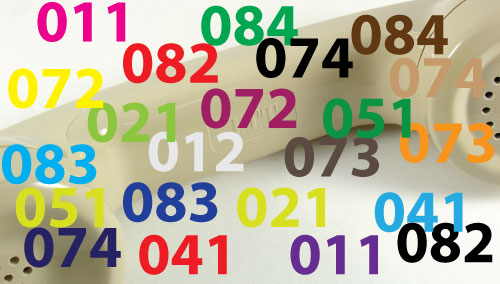
Want to phone someone on Vodacom? Rather than dialling “082”, you may soon have to dial “882” instead. Draft regulations governing the phone numbering scheme SA uses could mean that every phone number in the country will have to change.
The Independent Communications Authority of SA (Icasa) has released draft numbering plan regulations that could result in South Africans having to learn a raft of new dialling codes if fully implemented.
Landline codes could change from, say, 011 (for Johannesburg) or 021 (for Cape Town), to 611 or 621.
And mobile numbers could change from, say, 082 (historically Vodacom) or 084 (historically Cell C), to 882 or 884.
The move is being considered to free up more numbers and to create more transparency about what numbers represent.
For years, number prefixes have come to be associated with specific operators, such as the 083 and 073 number ranges allocated to MTN. Now consumers may have to get used to a whole new set of number prefixes.
Though Icasa has not set a timeframe for implementation of the proposed changes, the new numbering scheme could be implemented as soon as two years from now, according to an explanations document that accompanies the draft regulations.
But it is also possible that the plan will not be implemented at all.
According to the explanations document, the new numbering plan will provide 10 times the numbering capacity of the existing scheme.
The change to the numbering system, if implemented, will form the final part of a three phase roll-out, which started in 2007 already. During the first phase of the plan, the regulator changed SA’s international dialling code from 09 to 00.
Also in 2007, fixed-line telephone subscribers were also forced to start using the dialling code for all geographic numbers, even if they lived in the same dialling-code area.
The draft regulations explain that there are several ways Icasa can approach the new numbering plan. It can choose to implement phase three at the same time it implements phase two, meaning it could happen in the next two years.
The authority may choose to implement both phases at the same time to minimise disruption, it says. Or it could implement the two phases separately, which is the more likely choice. This would mean the implementation would only start in five years.
“This would allow for the implementation to be planned properly and to take place after current industry issues like interconnection have been sorted out,” Icasa says in the explanations document.
Icasa spokesman Paseka Maleka says the regulations are still in the consultation phase. “Once the public hearings are complete, we will be in a position to determine when the changes will take place,” he says.
The authority is set to hold hearings on 17 and 18 August. The deadline for written submissions is 26 July. — Candice Jones, TechCentral
- Subscribe to our free daily newsletter
- Follow us on Twitter or on Facebook




